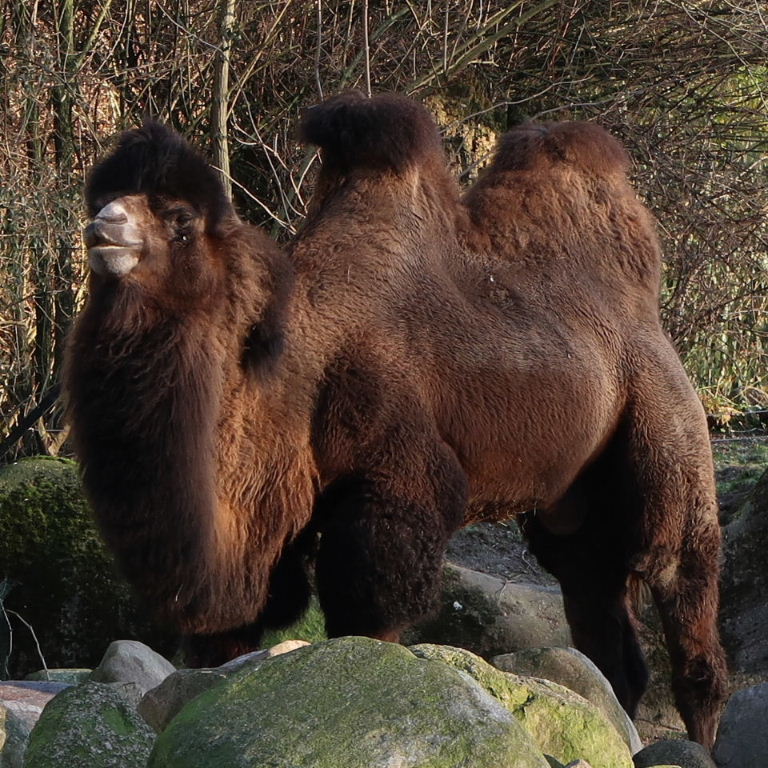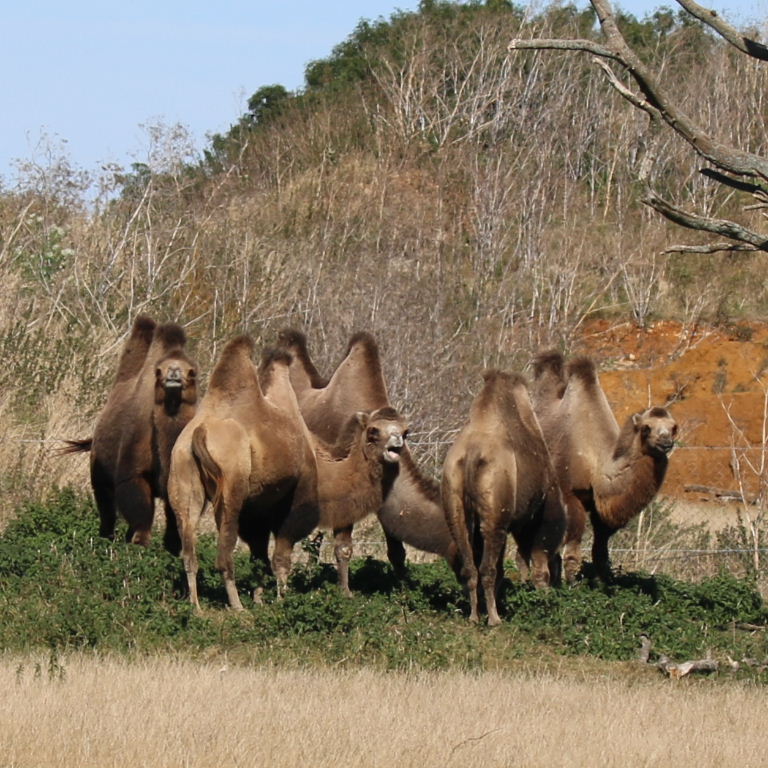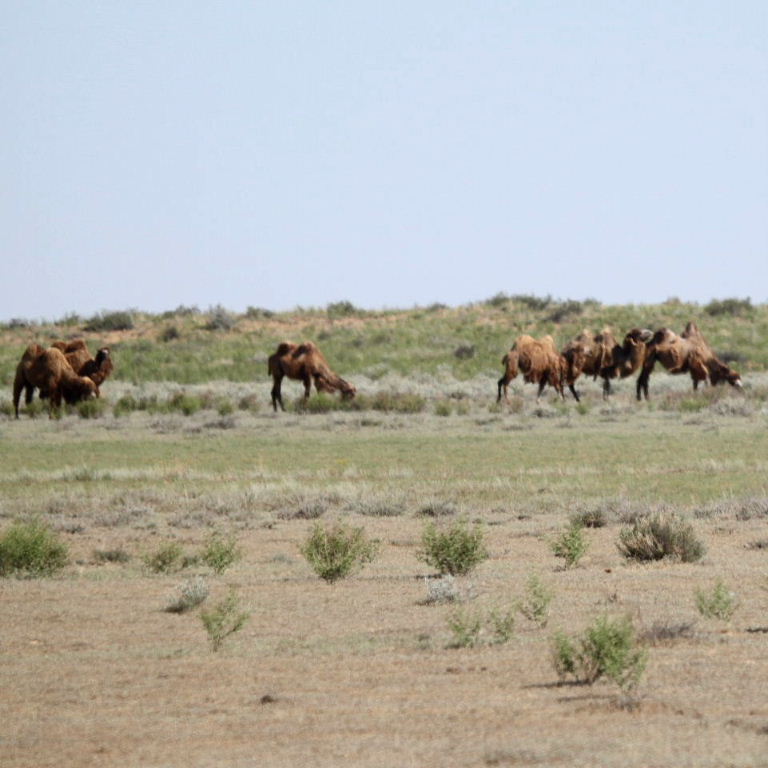Bactrian Camel Camelus bactrianus



The two-humped Bactrian Camel is mainly domesticated, but some semi-wild herds remain on the steppes and deserts of Central Asia,
particularly Kazakhstan. A few hundred genetically-distinct species of "Wild Bactrian" remain in the Ghobi Desert, Mongolia and northern China.
They are critically endangered, the main threat being poaching.



In addition to the extra hump, the Bactrian Camel has a far more shaggy coat and stocky, muscular build than the Arabian Dromedary.
(The Wild Bactrian, not shown, is more slender than the (domestic) Bactrian and has a less-shaggy, lighter-coloured coat.)



The (domestic) Bactrian has a shaggier hairdo.



The young of a camel is called a calf.


 The photo above by Alexandra Makhnina.
The photo above by Alexandra Makhnina.
Bactrian camels on the steppes of Central Asia. They are free-roaming but owned.


These have been shorn for the hot weather (camel hair coats and blankets are prized by humans).

The Bactrian is also domesticated for riding.




